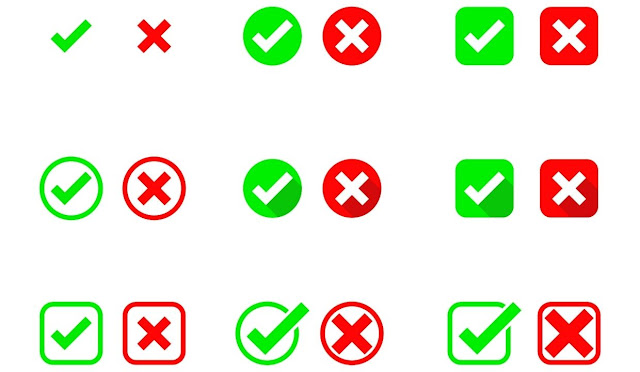What is the Connection between Competition Law and International Trade Agreements?
Antitrust and competition law firms in Vietnam are witnessing a changing legal landscape, as competition rules are increasingly linked to the provisions of international trade agreements.
In the dynamic landscape of global commerce, the intertwining realms of antitrust and international trade agreements play a pivotal role in shaping business practices and market competition.
This synergy becomes even more pronounced in the context of Vietnam, a nation with a rapidly growing economy and a burgeoning appetite for international trade.
As Vietnam continues to integrate itself into the global market, the interplay between antitrust regulations and international trade agreements has significant implications, both for businesses and the legal experts who specialize in these areas.
In this article, we will explore the connection between antitrust regulations and international trade agreements in Vietnam and examine the implications for businesses and the law firms that advise them.
The Evolving Legal Landscape
Vietnam’s integration into the global economy has been accelerated through trade agreements like the Comprehensive and Progressive Agreement for Trans-Pacific Partnership (CPTPP) and the European Union-Vietnam Free Trade Agreement (EVFTA).
These agreements have not only facilitated international trade but also come with provisions that impact antitrust and competition law in the country. As a result, antitrust and competition law firms in Vietnam are navigating an increasingly complex legal environment.
Antitrust and Competition Law Firms in Vietnam: Balancing National and International Laws
For antitrust and competition law firms in Vietnam, the challenge lies in striking a balance between compliance with domestic competition laws and ensuring alignment with international trade agreements.
This requires an in-depth understanding of both legal domains. Let’s delve into the key aspects of this connection:
1. Competition Law in Vietnam: Vietnamese competition law aims to promote fair competition, prevent anti-competitive practices, and protect consumers. This law provides a framework for local authorities to scrutinize mergers, acquisitions, and other business practices to ensure they do not harm competition.
2. International Trade Agreements: Trade agreements like the CPTPP and EVFTA encompass not only trade in goods and services but also provisions related to competition policy. These agreements often include clauses that prohibit anti-competitive practices and require adherence to specific competition principles.
3. Challenges of Convergence: The challenge for antitrust and competition law firms in Vietnam is to reconcile the often different approaches and standards set out in domestic competition laws with those established by international trade agreements. This can be a complex and nuanced task.
Antitrust and Competition Law Firms in Vietnam: The Implications
The implications of this convergence between competition law and international trade agreements are profound, impacting various aspects of business and legal practice in Vietnam.
1. Increased Scrutiny of Cross-Border Mergers and Acquisitions: International trade agreements necessitate a closer look at the potential anticompetitive effects of cross-border mergers and acquisitions. Antitrust and competition law firms in Vietnam need to ensure their clients understand and comply with these requirements.
2. Proactive Compliance and Risk Mitigation: Firms are advising clients to take a proactive approach to ensure their business practices align with both domestic competition laws and international trade agreements. This approach includes conducting internal audits and risk assessments.
3. Litigation and Enforcement: The connection between competition law and international trade agreements can give rise to disputes, which may require litigation. Law firms are increasingly representing clients in these cases, bringing together expertise in competition law, trade law, and dispute resolution.
4. Monitoring and Reporting: International trade agreements often require government authorities to monitor and report on their antitrust activities. Businesses operating in Vietnam may need to keep a close eye on these developments to ensure compliance.
Antitrust and Competition Law Firms in Vietnam: Staying Ahead of the Game
Antitrust and competition law firms in Vietnam are adapting to this changing landscape by providing specialized services to businesses operating in the country. These services include:
1. Comprehensive Legal Counseling: Firms are offering comprehensive legal counseling that considers the intersection of competition law and international trade agreements. This involves assisting businesses in understanding their obligations and rights under these agreements.
2. Compliance Programs: Firms are helping clients establish robust compliance programs that incorporate competition law and trade agreement provisions. These programs aim to mitigate risks and prevent anticompetitive behavior.
3. Due Diligence: Antitrust and competition law firms conduct thorough due diligence when businesses engage in mergers, acquisitions, or international transactions. This diligence includes assessing the potential antitrust and competition law implications under international trade agreements.
4. Dispute Resolution: In case of disputes arising from antitrust and trade-related matters, law firms in Vietnam are equipped to handle legal proceedings, negotiations, and mediation, ensuring clients’ interests are protected.
As Vietnam continues to deepen its involvement in international trade, the connection between antitrust and competition law and international trade agreements becomes more pronounced. Antitrust and competition law firms in Vietnam are at the forefront of this evolving landscape, helping businesses navigate the complex web of regulations and obligations. The ability to harmonize national and international laws is essential, and law firms play a pivotal role in ensuring that businesses thrive within this framework.
In the ever-changing world of business and commerce, staying informed about the interplay between antitrust and trade agreements is not just a matter of compliance; it’s a competitive advantage. Businesses operating in Vietnam need the guidance and expertise of antitrust and competition law firms to harness this advantage while navigating the challenges of this intricate legal landscape. In this new era of international trade, the role of these law firms in shaping the business environment in Vietnam is more significant than ever before.
ANT Lawyers, law firm in Vietnam
We help clients overcome cultural barriers and achieve their strategic and financial outcomes, while ensuring the best interest rate protection, risk mitigation and regulatory compliance. ANT lawyers has lawyers in Ho Chi Minh city, Hanoi, and Danang, and will help customers in doing business in Vietnam.


.jpg)

Nhận xét
Đăng nhận xét